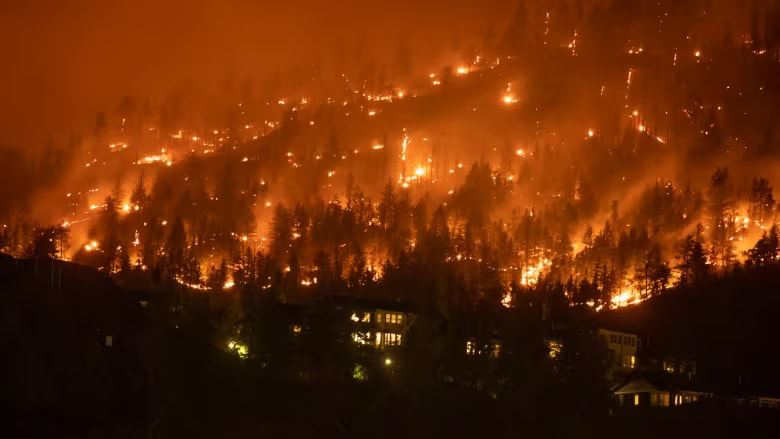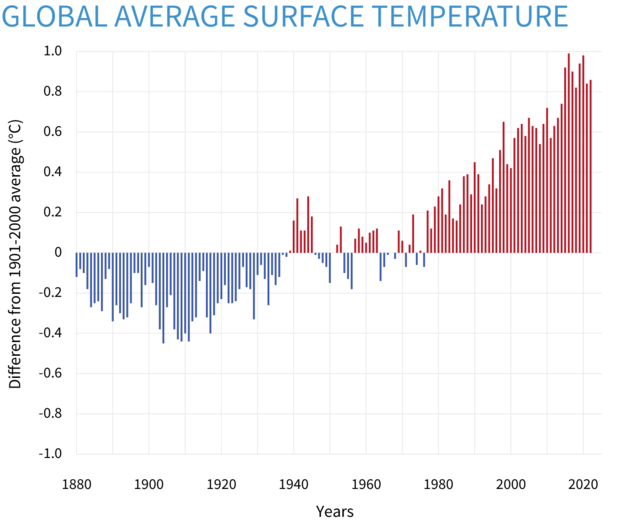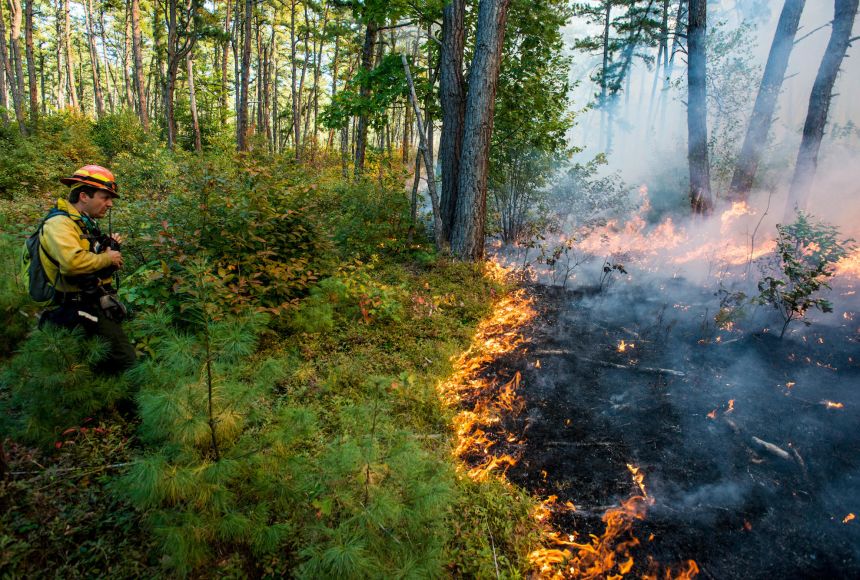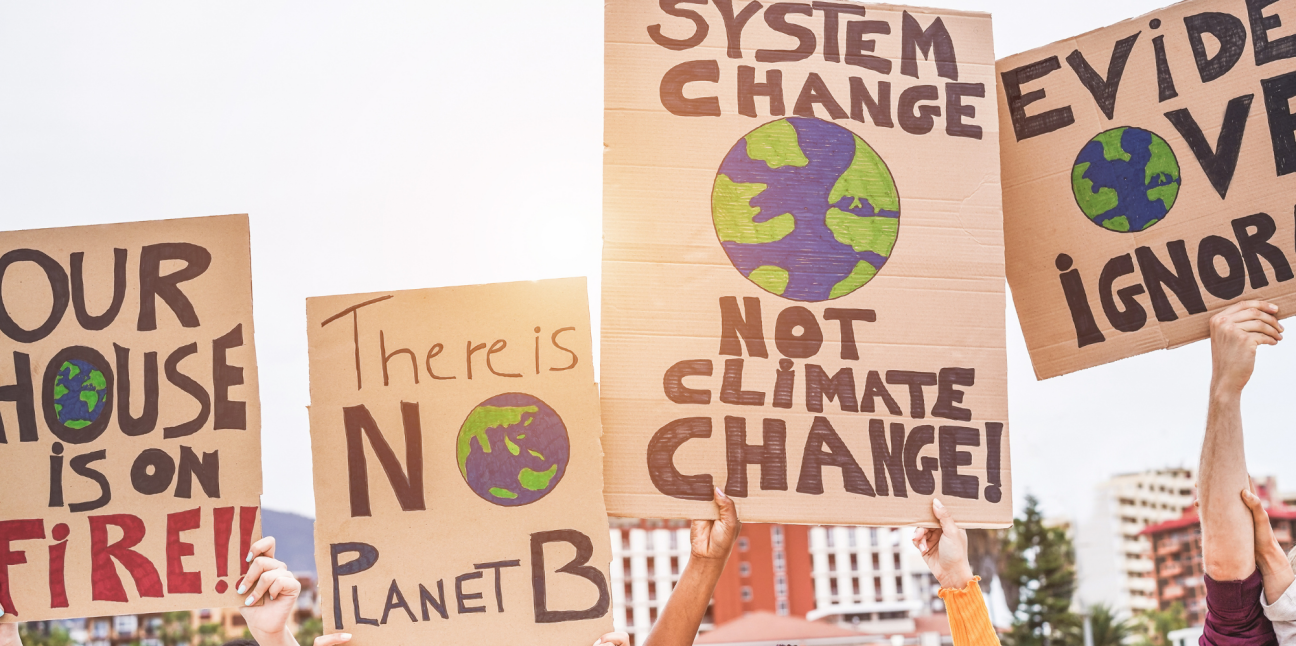|
We are currently experiencing the worst wildfire season on record, and I can't help wondering how we got to this point? By Erin Postma Eco-anxiety is the fear of environmental cataclysm that comes from observing the impact of climate change and the effect it could have on your future. Eco-anxiety is something that I have been experiencing these last few weeks, and I don't think I am alone. Every time I turn on the news or check social media, all I see are the various natural disasters occurring all over the world, specifically the wildfires. It breaks my heart to see our country, as well as countries around the world, burning. Eco-anxiety can feel overwhelming, and it makes it difficult to act or celebrate success stories. I find myself stuck in this feeling of helplessness and hopelessness. I can’t help but wonder, how did we get here? How did we let it get to this point? The worry that we are feeling is legitimate. Climate change is here, and it is a real threat. We are currently experiencing the worst wildfire season on record. As of Tuesday, over 1,000 wildfires were burning across Canada— with 650 deemed out of control. These wildfires have caused people to evacuate their homes, caused damage to many structures, and have resulted in multiple fatalities. They have destroyed entire ecosystems. The wildfires have also caused a significant decrease in air quality across the country and the United States. The effects of these wildfires have been devastating and are felt all over the country. These wildfires are devastating but not shocking. Mother Nature has given us so many signs. She has shown us time and time again the path we are headed down if we don't make a change. But none of these signs seem enough to trigger the change needed. What needs to happen for us to take climate change seriously and make a drastic change? I don't understand how we can stand by while our beautiful planet is suffering. We have entered a period of warming and wildfires. Climate change has led to the accumulation of dry biomass, increased heat waves and the alteration of the water cycle. All of these factors are increasing the intensity and frequency of wildfires. We need to be prepared to face more frequent and higher-intensity fires. Regions that have never experienced large-scale fires need to be ready. The A2A region has a history of wildfires, but nothing like the fires we currently see burning in British Columbia or the Northwest Territories. However, that doesn't mean we won't experience fires of this magnitude in the future. According to a study in the Adirondacks, it is not likely that we will be heavily impacted by wildfires—but with the unpredictable weather brought about by climate change, we can't be sure (Benett, Adirondack Explorer). There are a few ecological factors that protect the A2A region from being devastated by wildfires. The region is less prone to wildfires due to its generally humid climate, biodiversity, land management, and connectivity. Even though out-of-control, devastating wildfires don't occur often in the A2A region, it doesn't mean they won't. We are living in unpredictable and unprecedented times. No area is immune to the effects of climate change. In the event they do happen, we need to prepare and take preventative measures. There are things we can do to stop these wildfires. We need to practice proper forest management, including using prescribed burns. We need to encourage the protection and preservation of biodiversity. We need to fight climate change and curb our greenhouse gas emissions. Wildfires are scary and cause devastation, but they are also necessary and can have positive effects when controlled. Prescribed burns can help lower the risk of unpredictable, uncontrollable wildfires. Humans have been using prescribed burns for thousands of years. Many species require fire to survive and reproduce. Wildfires move the layer of decaying material from the forest floor—this helps increase soil fertility. There are plants that require fire for germination. Wildfires can also help manage invasive species. Fire can be a wonderful life-bringing force when used responsibly. Unfortunately, because of human irresponsibility, it has become a force associated with death and destruction. I am mad and terrified about the future of the planet. I feel a little bit helpless but not hopeless. I know there are people out there who care and are working hard to make a positive impact.
Anthropogenic climate change has brought about countless out-of-control wildfires, yet another reason we need to act quickly to curb the effects of climate change before it is too late. I am scared about what the future of our planet might look like. How can we watch our world burn but continue with business as usual? We need to turn our eco-anxiety into eco-action. What happens next is up to us -good or bad, scary or scarier.
0 Comments
Leave a Reply. |
Details
AuthoRSAleisha Pannozzo Archives
March 2024
|
© 2024 Algonquin to Adirondacks Collaborative
A2A is a 149(1)(f) registered Canadian charity | BN: 86307 1668 RR0001 | and a 501(c)(3) tax-exempt organization in the U.S. | IRS #86-1358996 |
Become a Member | Maps & Region | FAQs | Donate Online | Contact Us
A2A is a 149(1)(f) registered Canadian charity | BN: 86307 1668 RR0001 | and a 501(c)(3) tax-exempt organization in the U.S. | IRS #86-1358996 |
Become a Member | Maps & Region | FAQs | Donate Online | Contact Us




